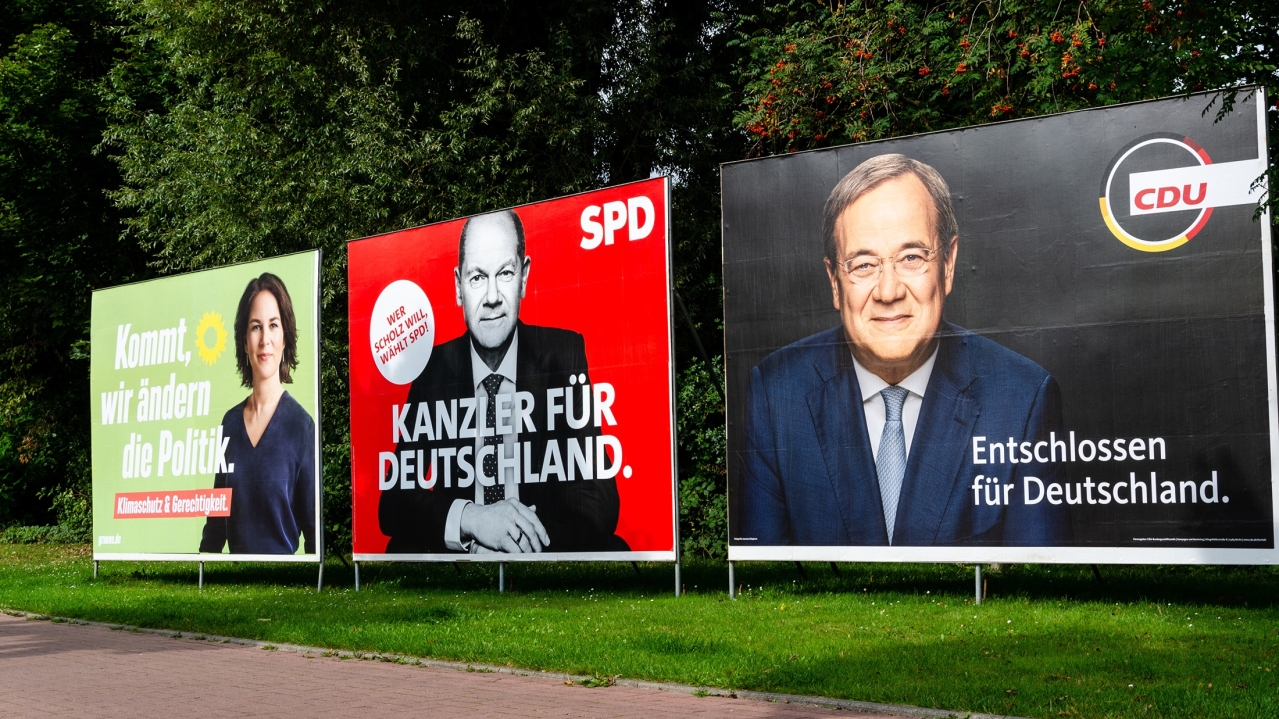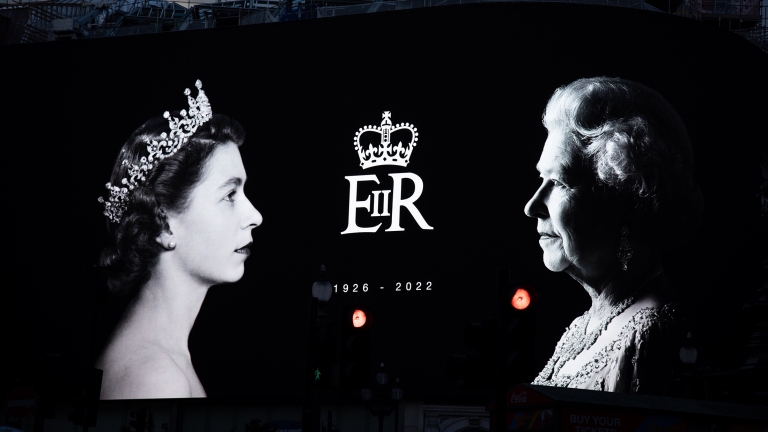German politics used to be simple. For decades, there were two big parties, the nominally christian democratic CDU/CSU, and the nominally social democratic SPD. However, it was the much smaller, nominally liberal FDP who usually got to decide who would govern – the big parties needed the FDP to get a majority.
There was so little difference between them that in the 1970s and ’80s, political scientists claimed that these three parties, plus employers and trade unions, had developed a „neocorporatist” system where there was never any real competition or conflict. Instead, they all agreed to be nice to each other. Political struggle never aimed at destroying the adversary. Whoever won an election would always leave the opposition with enough jobs and ressources to carry on.
Today, things look much more confusing. There are six parties in parliament, and a three-party coalition government that barely holds together. Ideologically, huge differences have appeared, all the way from demanding an end to the nation state (including Germany) to demanding the resurrection of German national pride.
On top of everything else, each of the bigger parties is really two parties. There is the SPD of pragmatist chancellor Olaf Scholz, but it is also a party with a radical leftwing member base. The CDU and its Bavarian sister party CSU want to lure Green voters to their side, but also want to attract supporters of the rightwing AfD. The Greens themselves are utopists led by pragmatists.
Christlich-Demokratische Union (CDU): The governing party in Germany’s default setting. When not otherwise specified, the CDU governs. Of Germany’s 73 years as a modern democracy (since 1949), 52 years were spent under CDU-led governments (1949-1969, 1982-1998, 2005-2021). Its main message to voters is that it knows how to govern.
NOT governing (as of 2021) has thrown the party into a severe identity crisis. Who are we if we are not in power? They haven’t quite made up their minds wether to move to the right, or to the greener side of politics, or to look for the political center (but that seems difficult to find these days).
Many CDU politicians would prefer to just stop soul-searching and instead simply govern again. But for that they would need to win elections. And then find coalition partners. They stand at 27 percent of voter sympathies (INSA/BILD, 06 November). National conservative AfD (15%) are taboo, because all other parties have declared them to be Nazis. Any of the three governing parties - SPD (21%), Greens (17%), FDP (8%) - would do, but two of them would be necessary. And why would they go for a junior partnership with the bigger CDU as long as they can govern and bother each other together?
Fortunately for the CDU, if we add up these figures, it’s not at all sure that the coalition will survive the next elections. They add up to 46%.
Christlich-Soziale Union (CSU) Sister party of, and similar to, the CDU, but limited to Bavaria. Used to be conservative, but got bored of it after reading Douglas Adams’ „Hitchhikers Guide Through the Galaxy” and are currently searching for the meaning of life, the universe and everything.
Sozialdemokratische Partei Deutschlands (SPD) Used to be the worker’s party but today they dislike them. The classical German worker holds dim views of muslims, transgender persons and high electricity bills, all of which the SPD is eager to represent. The classic German worker dreams of owning a house and a Mercedes. The SPD dreams of taxing the life out of home- and car owners. Between its pragmatic, old-school, money-oriented, managerial figurehead, Chancellor Olaf Scholz, and its crazy member base, the book that best describes the party is „Hocus Bogus”, by Emile Ajár. It’s about how much he hates novelist Romain Gary (but in reality, they are the same person).
The good news is that somehow, Olaf Scholz manages to govern despite his party. The bad news is that without Scholz (should he slip on a banana peel) the SPD might well shrink to the size of a splinter party.
The Greens: The Greens currently almost look like a serious party. That’s partly because their actual policies turned out to be more normal than what most people had feared, and partly because most of the other parties look even less serious. The Greens set out to abolish Germany as a nation state, conduct a pacifist foreign policy based on feminism, repudiate American cultural hegemony and only use energy that is as unreliable as the weather report (wind, sun). Instead, they have decided to return to coal, prolong nuclear power and beat the hell out of Russia via Ukraine in close cooperation with the US. They set out as role models for transparency but then discreetly cooked the books in a study on the viability of nuclear power, pretending they had „examined” the sustainability of nuclear power plants, when in fact, they hadn’t.
In a way, all of this shows they can be real politicians, not just idealistic dreamers. But that’s just true for some of their leaders. The party base is best described by the book title „Where the Water Melons Grow”.
They still want to attract more muslim migrants, allow children to undergo gender changing treatments, and do away with christian symbols in official places. That’s Germany today: Completely normal.
Alternative für Deutschland (AfD)
This is a party that in all other countries would count as run-of-the-mill national conservative, except it is German. AfD politicians are perfectly normal people who sometimes happen to say blood-curdling things. There is a difference between wanting less or no migrants (like in Hungary) and wanting to „remigrate” millions of with „well temperated cruelty” (AfD politician Björn Höcke). Many of them are from the former East Germany and wouldn’t mind a strong leader to make order in the country. They are desperate for company but no other party wants to be with them. Maybe because there is a general sense that they might be harboring an inner demon to watch out for – like in the novel „To awaken your inner demon”, by Robert Burns. But just like that novel’s hero, they are otherwise perfectly normal.
Freiheitlich Demokratische Partei Deutschlands (FDP)
As I’ve mentioned, the FDP used to be a small but central player in German politics. As such, it produced memorable politicians like economy minister Otto Graf Lambsdorff or foreign minister Hand Dietrich Genscher, steadfast men of principle who had real impact on the country’s destiny. Today’s FDP prefers to run after trends in an opportunistic way, which is why it has agreed to participate in an essentially leftwing coalition. Always on the brink of not making it into parliament, it resembles grand vezir Iznogoud of the French comic strip series: The man who wants to be caliph instead of the caliph. He will commit any felony to achieve that, but always fails. Gender change? Sure. Federal EU? Great. More migrants? All right for the FDP. If they thought it could help, they would readily espouse the exact opposite of these positions. It hasn’t increased their popularity.
Die Linke Like the AfD, this is party is a cultural remnant of East Germany and, in fact, the legal successor of the communist party. You can’t accuse them of not having changed. They passionately defend the cause of opressed Muslims, Kurds, Blacks, transgender beings and any mini-minority on condition of not fitting into mainstream society. Oh, and Russia. That has remained from their communist heritage. Voters react with a distinct lack of interest, bordering on disgust.










